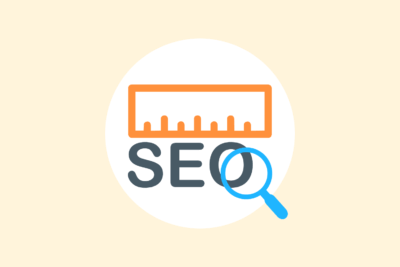The role of topical authority in generative search results

Anyone who wants to stand out in a landscape where AI search engines such as ChatGPT, Gemini and Claude are increasingly the primary source of information must understand how these systems select information. In doing so, one factor plays an increasingly important role: topical authority.
But is topical authority really that important in generated search results? And why should it be?
Topical authority refers to the degree to which your website is seen as an expert within a particular topic. Not because you happened to write one good article, but because you publish structurally, in-depth and consistently on that particular topic. Think of a specialist who writes about SEO not once, but dozens of times. Then do so each time from a different angle.
For classical search engines, topical authority has long been important. Google rewards websites that cover topics both broadly and deeply. For AI systems like ChatGPT or Gemini it goes one step further: they take information based on pattern recognition, interrelationships and reliability within a semantic network. Topical authority is the anchor in this.
Generative AI systems answer questions by drawing from billions of text fragments. They do not simply try to find the “best” article, but generate a coherent answer. In doing so, they rely on sources that:
- Being recognizably specialized within a domain
- Provide consistent, coherent information
- Using concepts and context correctly and repeatedly
If I write many valuable pages on one topic, the chances that ChatGPT or Gemini will recognize, understand and incorporate content into the response increases.
Topical authority does not arise spontaneously. I work on it in a focused way with the following steps:
1. Defining themes
I consciously choose which topics I will and will not claim. For example: SEO, AI content, link building. Within that, I focus on concrete subtopics such as ‘SEO for ChatGPT’ , ‘ structured data’, or ‘topical authority itself’. Through repetition and depth, I build recognition.
2. Creating content clusters
I work with so-called content clusters: a central page (pillar page) surrounded by supporting articles on sub-topics. For example:
- Pillar: What is link building?
- Clusters: Link building for e-commerce, Internal links versus external links, Link building in 2025
This structure reinforces semantic consistency. AI models not only recognize the individual articles, but see that the topic is highlighted from multiple angles.
3. Internal linking
I always link pages together logically. I do not use over-optimization, but a natural structure where I help the reader as well as the AI understand how the content relates. These internal links reinforce the signal that the website is an authority within the topic.
4. Reuse and restructuring
Topical authority is not a matter of volume, but of quality. I improve existing pages, make sure there is no overlap and merge outdated content into one strong piece. This creates less, but better content – that works.
5. Consistent publication
I don’t publish five pages in one week and then fall silent for three months. Instead, I opt for a steady stream of valuable content. This is how I build trust, both with users and with AI systems that monitor or train content.
So publish regularly, in logical content clusters and ensure a strong internal link structure.
I see the effect of topical authority reflected in several ways:
- Higher visibility into AI responses (such as Gemini’s SGE blocks or ChatGPT responses)
- Better ranking in classic search results, especially on long-tail terms
More quoted snippets in tools such as Perplexity, which transparently indicate where information comes from - Increased engagement: visitors stay longer, click through and convert more often
Traditional authority is often linked to external signals: backlinks, mentions, domain age. Topical authority is precisely about content depth and structure. Therefore, I do not focus on collecting as many links as possible, but on providing the most complete information on a topic.
This does not mean that links are unimportant, but rather that they only really count when they point to valuable, thematically relevant content. Quality before quantity.
What does this mean for your SEO and AI strategy?
If you want to be found in a world that increasingly revolves around generated answers, topical authority is an indispensable pillar. It’s not enough to publish “something” about a topic. You must claim the topic, deepen it and persevere.
Choose three themes that fit your expertise and target audience. Work those into a content cluster. Connect the parts, keep the quality of your content high and publish regularly. That’s the bottom line.
Summary
Topical authority is the key to visibility in an AI-driven search environment. By systematically building content that is strong and logically structured, you will be recognized as a resource (not only by search engines), but also by language models that increasingly try to answer users’ information needs directly.
Do you want to know how strong your website already is in terms of topical authority? Are you curious about how you can use this structurally in your content strategy? Feel free to send me a message. I like to think along with you.






